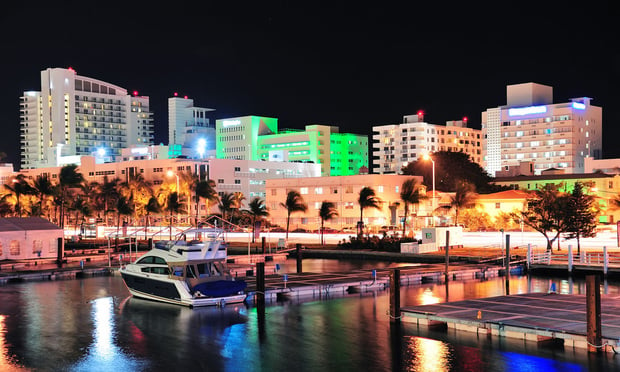The fund, Kimpton's third, is called Kimpton Hospitality Partners II LP. Kimpton's previous fund, Kimpton Hospitality Partners LP, closed in 2005 and now has an ownership interest in 13 Kimpton properties. Its inaugural fund, Kimpton Development Opportunity Fund, was raised in 1997 and leveraged $122-million to acquire nine properties. All but two of those have now been sold.
All three funds were formed to acquire, develop and redevelop boutique/lifestyle hotel properties—and to convert non-hotel buildings into boutique/lifestyle properties—in select major US metropolitan cities and resort areas across the country. The first properties in its latest fund are the Architects Building in Philadelphia, a historic structure that is being converted to a Hotel Palomar, slated to open in 2009, and a ground-up development in Chicago that also will be called Hotel Palomar.
As for existing hotel properties, Kimpton says it will either acquire successful properties that fit the Kimpton model, such Boston's Nine Zero Hotel, which it acquired last spring, or properties that are underutilized and can be renovated and repositioned as a Kimpton hotel, such as the former Radisson Hotel in Washington, D.C. which was converted to a Hotel Palomar.
JP Morgan hotel analysts sent out a note to investors yesterday after participating in a conference call with Smith Travel Research. Despite a limited ability to forecast demand due to economic uncertainty, JP Morgan said it took away the following:
- No supply surge expected in 2009. Based on the current pipeline, we believe there will not be a surge in supply growth from 2008 to 2009. Recent press reports had indicated that STR was set to announce a surge, which is not the case. For 2008, supply growth should be approx. 2-2.5% (see Figure 1). STR estimates y/y supply growth in 2009 should be approximately 2.5% and 2010 growth should not be greater than 2-2.5%.
- Constraints on financing should also limit supply growth, which could reduce projects in the planning and pre-planning phase. Hotels most susceptible to not being completed due to the credit crises are those that carry the most risk, namely luxury/upper upscale with high price tags located in urban areas having long construction times. There is far less risk of cancellation for mid-scale properties with short construction times.
- Greater ability to absorb new room supply than in 1991 and 2001 recessions. The 1991 and 2001 downturns were preceded by several years of room supply growth of +3-6%. In the current cycle, room supply growth has been very low (0-2% over past 5 years). The current recession is different in that there is not a significant supply overhang, which should benefit lodging companies.
- Improved revenue (internet booking) management: In the 2001-2003 downturn, the lodging industry did not help itself by overly discounting rooms via third-party websites. Hotels panicked and used those websites to dump inventory and slash prices. A positive for hotel companies is that hotel operators are far more versed in their and third-party websites to manage prices, and companies should be less likely to use fire sales to sell rooms. This implies less pressure on ADRs this time around.
- Leisure business clearly weaker than business travel, the opposite of 2001-2003. Occupancy declines in 2007-2008 have been greater for economy hotels due to a falling-off in the leisure traveler segment. This is the flip-flop of 2001-2002, when the upper end was significantly impacted more than the lower-end. This is a result of bottom-up downturn as opposed to a top-down downturn previously.
- Western Europe: Growth from Eastern European and Asian visitors. There has historically been a strong link between the FX rate (US$/Euro) and European RevPAR. Historically, when the US$ has depreciated, European RevPAR has suffered. However, this correlation has not been visible for the past 18 months, as the fall-off in American visitors has been taken up by the Eastern European markets and Asian markets.
Want to continue reading?
Become a Free ALM Digital Reader.
Once you are an ALM Digital Member, you’ll receive:
- Breaking commercial real estate news and analysis, on-site and via our newsletters and custom alerts
- Educational webcasts, white papers, and ebooks from industry thought leaders
- Critical coverage of the property casualty insurance and financial advisory markets on our other ALM sites, PropertyCasualty360 and ThinkAdvisor
Already have an account? Sign In Now
*May exclude premium content© 2024 ALM Global, LLC, All Rights Reserved. Request academic re-use from www.copyright.com. All other uses, submit a request to [email protected]. For more information visit Asset & Logo Licensing.








